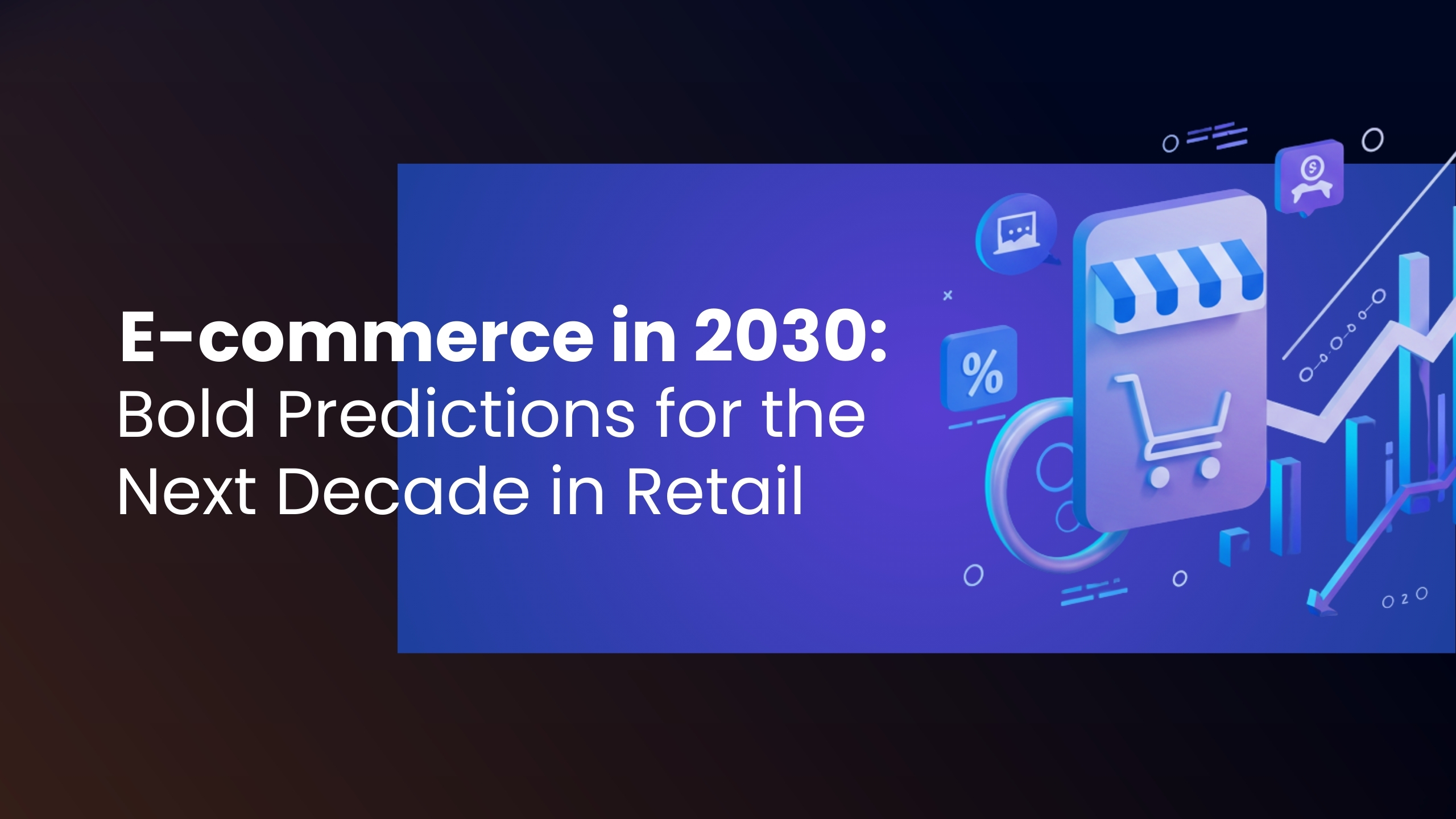E-commerce in 2030: Bold Predictions for the Next Decade in Retail
The retail landscape is on the brink of a revolutionary transformation. With rapid technological advancements and shifting consumer expectations, the next decade promises profound changes in how e-commerce operates. This article explores bold predictions for e-commerce in 2030, highlighting emerging trends and innovations that will shape the future of retail in Australia and beyond.
- Emerging Technologies Shaping the Future
Artificial Intelligence and Machine Learning:
• AI will drive hyper-personalization, offering tailored shopping experiences that anticipate consumer needs.
• Predictive analytics will refine inventory management and optimize supply chains, reducing costs and improving efficiency.
Augmented and Virtual Reality:
• AR and VR will provide immersive product experiences, allowing customers to virtually try on items or visualize products in their own spaces.
• These technologies will bridge the gap between digital and physical retail, enhancing customer engagement.
Blockchain and Enhanced Security:
• Blockchain will offer increased transparency and trust, ensuring secure transactions and authentic product verification.
• Decentralized data management will help retailers protect consumer information and streamline operations.
5G and IoT Integration:
• The widespread adoption of 5G will facilitate faster, more reliable mobile commerce, while IoT devices will provide real-time insights into customer behavior and inventory status.
- Evolution of Consumer Behavior
Mobile-First Experiences:
• By 2030, mobile commerce will dominate, with consumers expecting seamless, fast, and intuitive shopping experiences on their smartphones.
• Retailers must prioritize mobile optimization to capture this growing trend.
Demand for Personalization:
• Consumers will increasingly seek personalized interactions and recommendations based on their unique preferences and past behaviors.
• Enhanced data analytics will allow retailers to deliver tailored experiences, fostering loyalty and increasing conversion rates.
Sustainability and Ethical Practices:
• Eco-conscious consumers will drive demand for sustainable products and transparent business practices.
• Retailers committed to ethical sourcing and green operations will gain a competitive edge.
- Innovative Retail Models
Integrated Omnichannel Experiences:
• Future retail will seamlessly blend online and offline channels, providing customers with a consistent experience across all touchpoints.
• Innovations in logistics and fulfillment will ensure quick, reliable deliveries, whether shopping from home or in-store.
Subscription and As-a-Service Models:
• Subscription-based models will evolve, offering continuous value through regular deliveries and personalized services.
• These models will create a steady revenue stream and build long-term customer relationships.
Decentralized Marketplaces:
• Blockchain-powered platforms will enable secure, peer-to-peer transactions, reducing reliance on centralized intermediaries and increasing consumer trust.
- Challenges and Opportunities
Regulatory and Privacy Concerns:
• With data as a central asset, robust regulations will be necessary to protect consumer privacy while fostering innovation.
• Retailers must invest in secure, compliant technologies to navigate an evolving regulatory landscape.
Integration Complexity:
• Merging legacy systems with new technologies presents challenges.
• Scalability and seamless integration will be critical to ensure businesses can adapt to rapid technological changes.
Continuous Innovation:
• The fast pace of innovation demands ongoing investment in technology and talent.
• Retailers that stay agile and embrace change will be best positioned to thrive.
FAQ
Q: What are the key trends shaping e-commerce by 2030?
A: Trends include AI-driven personalization, immersive AR/VR experiences, blockchain-enhanced security, mobile-first commerce, and seamless omnichannel integration.
Q: How will consumer behavior evolve in the next decade?
A: Consumers will expect hyper-personalized, fast, and sustainable shopping experiences, with increased reliance on mobile devices and integrated digital platforms.
Q: What challenges do retailers face in adapting to these changes?
A: Major challenges include integrating new technologies with existing systems, ensuring data privacy, meeting evolving regulatory requirements, and maintaining continuous innovation.
Conclusion
E-commerce in 2030 will be defined by transformative technologies and evolving consumer expectations. Retailers that embrace AI, AR/VR, blockchain, and integrated omnichannel strategies will not only meet these changes but also drive significant growth and customer loyalty. The future of retail is bold and dynamic—now is the time to invest in innovation and shape the next decade of online commerce.
Share your predictions and thoughts on the future of e-commerce in the comments below or contact our team for personalized advice on preparing your business for 2030. Let’s build the future of retail together!

